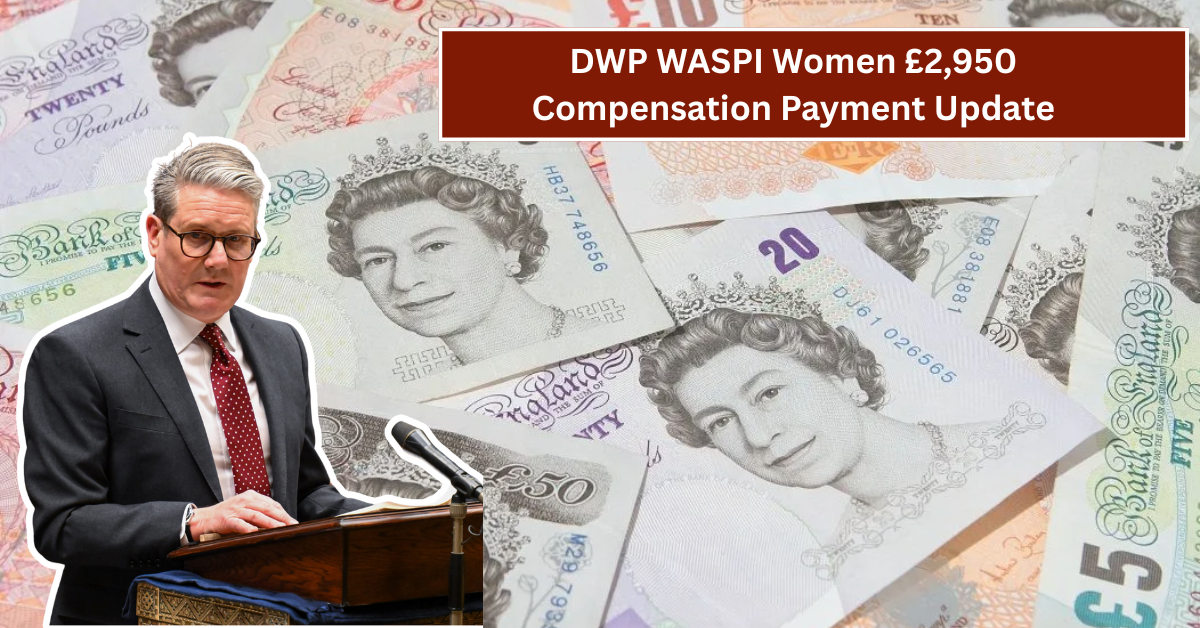
The issue of compensation for WASPI women has been a hot topic in the UK recently. Many women born in the 1950s feel they were unfairly treated due to changes in state pension ages. The Department for Work and Pensions (DWP) offered £2,950 compensation payments to affected women, but many are still unhappy with the decision. The situation has caused a significant debate and calls for justice.
Now, there is hope that a recent High Court ruling might change the game. This new legal update could help break the long-standing deadlock between the DWP and WASPI women. In this article, we will explain the situation clearly and what this ruling means for WASPI women and their compensation claims.
Who Are the WASPI Women?
This Article Includes
- 1 Who Are the WASPI Women?
- 2 What Is the £2,950 Compensation Payment?
- 3 Why Is There a Deadlock Between WASPI Women and DWP?
- 4 What Does the High Court Ruling Say?
- 5 How Could This Ruling Affect WASPI Women?
- 6 What Should WASPI Women Do Now?
- 7 Why Is This Update Important for Younger Readers?
- 8 Final Thoughts
WASPI stands for “Women Against State Pension Inequality.” It is a campaign group representing women born in the 1950s who feel the government changed their pension age too quickly, without enough warning. Before, women could claim their state pension at 60, but the government raised this age to 65 to match men. Many women say this change hurt their financial plans and lives.
Because these changes happened gradually and sometimes with short notice, some women missed out on years of pension payments. The WASPI group argues that the government should have been more careful and offered better support during the change.
What Is the £2,950 Compensation Payment?
In response to the WASPI campaign, the DWP offered a one-time compensation payment of £2,950 to eligible women. This amount was meant to help cover the money lost during the period when women had to wait longer for their pensions. However, many WASPI women felt this payment was too low to cover their actual losses.
The DWP designed this payment as a gesture of goodwill, but critics say it does not fully address the unfairness or cover the financial gap caused by the pension age change. Some women also believe that more should be done to fix the issue permanently.
Why Is There a Deadlock Between WASPI Women and DWP?
The deadlock exists because both sides have different views on compensation and responsibility. The DWP insists that pension age changes were necessary and were announced legally, with enough time to prepare. On the other hand, WASPI women claim the government did not provide enough warning or support, causing financial hardship.
This disagreement has made it difficult to find a solution that satisfies everyone. The payment offered feels unfair to many, but the government is reluctant to increase it without clear legal pressure. That’s why the recent High Court ruling has gained so much attention.
What Does the High Court Ruling Say?
The High Court has recently made an important ruling that may help to end this stalemate. The court’s decision focuses on whether the DWP was fair and lawful in how it raised the pension age and managed the compensation process. This ruling could force the government to rethink its approach to WASPI women.
While the full impact of the ruling is yet to be seen, it opens the door for further legal challenges and possibly better compensation terms. For WASPI women waiting for justice, this is a hopeful sign that their voices are being heard at the highest level.
How Could This Ruling Affect WASPI Women?
If the ruling goes in favor of the WASPI women, it could mean that the government will need to increase compensation payments or provide better support. It may also set a precedent for future pension-related disputes, ensuring more fairness in how changes are communicated and implemented.
This development might motivate the government to offer clearer information and take responsibility for the impact of rising pension ages. For younger generations and future pensioners, this ruling could help prevent similar problems from happening again.
What Should WASPI Women Do Now?
Women who believe they are affected should keep informed about the latest updates on the case. It is essential to stay in touch with WASPI campaign groups and legal advisors to understand how the ruling might change their compensation rights.
Filing claims or complaints may be necessary to take advantage of any new compensation offers or changes. Acting early and seeking professional advice can help women avoid missing deadlines or losing eligibility for payments.
Why Is This Update Important for Younger Readers?
Even if you are young now, understanding pension rights is important. The WASPI case shows how government decisions can directly affect people’s lives, especially financially. Knowing about such rulings helps you prepare better for your future and ensures you stay aware of your legal rights.
This story also highlights the power of standing up against unfair policies and pushing for change through legal channels. It can inspire younger generations to be active citizens and demand fairness in social systems.
Final Thoughts
The DWP WASPI women £2,950 compensation payment has long been a source of frustration and disappointment for many. However, the recent High Court ruling offers a new opportunity for fair solutions and justice. While challenges remain, this legal update could finally break the deadlock and bring better outcomes for the affected women.
For those interested in following this case or who might be eligible for compensation, staying updated and seeking advice is now more important than ever. The future looks hopeful for WASPI women as they continue their fight for fairness and respect.




































